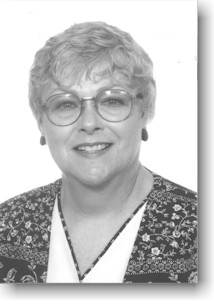Achievement Profile: Marianne Celce-Murcia
A career dedicated to enlightening ESL teachers
Dr. Marianne Celce-Murcia is a professor of Applied Linguistics & TESL at the
University of California in Los Angeles (UCLA). She administered the
UCLA ESL Service Courses program from January 1975 to June 1976, the
Summer Program for Soviet Teachers of English in 1976, and the Fulbright
Summer Program for Egyptian Teachers of English in 1987. She was acting
chair of the department for all of 1992. She was awarded the UCLA
Distinguished Teaching Award in 1976 and was selected for the
Danforth Associate Program (1977-83). In 1997 Heinle & Heinle
Publishers awarded her their Lifetime Achievement Award. Professor
Celce-Murcia has taught outside the U.S. in Canada, Nigeria, and
Egypt, and has lectured and consulted in many other countries.
Some Marianne Celce-Murcia links:
Discourse and Context in Language Teaching: A Guide for Language Teaching (2001)
What is your main ESL activity now? What are your
principal projects, and what is on the back burner?
I'm mainly trying to help my grad students finish their M.A. theses and
Ph.D. dissertations since I'll be retired as of July 1, 2002. After that I
will pursue professional activities selectively. I look forward to having
more time to read and more time for my grandchildren (Scott,9; Danielle,6;
and Joel, almost 2).
How did you start your ESL career? Who influenced
your decision? What were some important formative
experiences in the early stages of your development?
I got into ESL when I decided I did not want to be a high school English
teacher (the career I had initially been preparing for). Choosing UCLA as
the university for my graduate studies (I had done my B.A. at Univ. of
Illinois, Urbana-Champaign), was the most formative decision/experience for
me. I had excellent teachers and mentors (Cliff Prator, Lois McIntosh,
Victoria Fromkin, Sandy Thompson, and others), who convinced me not to stop
with an M.A. in Linguistics and a TESL Certificate. With their
encouragement and support, I eventually completed the Ph.D. in Linguistics,
and that has shaped my academic agenda, which has been to help ESL teachers
understand as much as possible about the English language so that they could
be more effective teachers.
What are the four or five language/culture backgrounds
with which you are most familiar as a teacher? Which
ones are you familiar with from the perspective of a
language learner yourself? What insights have you
gained in how to meet the needs of English learners
from these cultures and language backgrounds?
I went to Lagos, Nigeria between my M.A. and Ph.D. to teach ESL and
train ESL teachers at the Advanced Teachers College in Yaba. My students
there were native speakers of Yoruba, Ibo, Hausa, and related languages, so
I got to know a lot about the languages and culture of West Africa. At UCLA
most of my ESL students have come from East and Southeast Asia and are
native speakers of Chinese, Japanese, Korean, Vietnamese, Thai, etc. A
number of my students also speak Spanish as their L1. My other overseas
experience was in Cairo, Egypt at the Center for Developing English Language
Teaching (housed at Ain Shams Univ), so I've also had contact with Arabic
speakers and with Egyptian history and culture. It's important for language
teachers to learn something about the language(s) and culture(s) of their
students. It helps them understand where some of the learning problems come
from and it helps them prepare more relevant lessons and materials. In
terms of my own foreign language learning, I can only claim communicative
competence in German and French, although I do know a lot of facts about
many other languages. In retirement I plan to learn some Spanish.
If you had to give three pieces of advice to a
new ESL teacher, what would they be?
One, overprepare all your lessons; always have something extra you can
do on hand in case you have some time left at the end of a lesson. Two,
learn your students' names and be sure they learn each other's names; get to
know them as individuals and help them through your language tasks to get to
know each other. Three, be professional--friendly and fair yet firm--at all
times. Students need to respect their teachers, so don't show favorites
and (if you teach adults, don't date a student; once the class is over, your
relationship can change).
What do you see as the most important issues
facing the ESL/EFL teaching profession today?
Giving students in training sufficient preparation in 5 critical areas:
Final comments?
It's hard to see how all of this can be covered in a one-year program
Interviewed by Robb Scott
2002 ESL MiniConference Online
Direct Approaches in L2 Instruction: A Turning Point in Communicative Language Teaching (1997)
Discourse Analysis and Grammar Instruction (1990)
Teaching Pronunciation Communicatively (1983)
An ESL MiniConference Online interview
with Marianne Celce-Murcia:
-Language (grammar, phonology, lexis, discourse)
-Teaching language use and processing (listening, speaking, reading,
writing)
-Methodology (teaching approaches/techniques/activities/tasks,
curriculum/syllabus design,
lesson planning/materials development)
-Professional skills (assessment, classroom research, cross-cultural
communication, use of
computers/media)
-Supervised practice (micro-teaching, student teaching, class observation,
etc.)